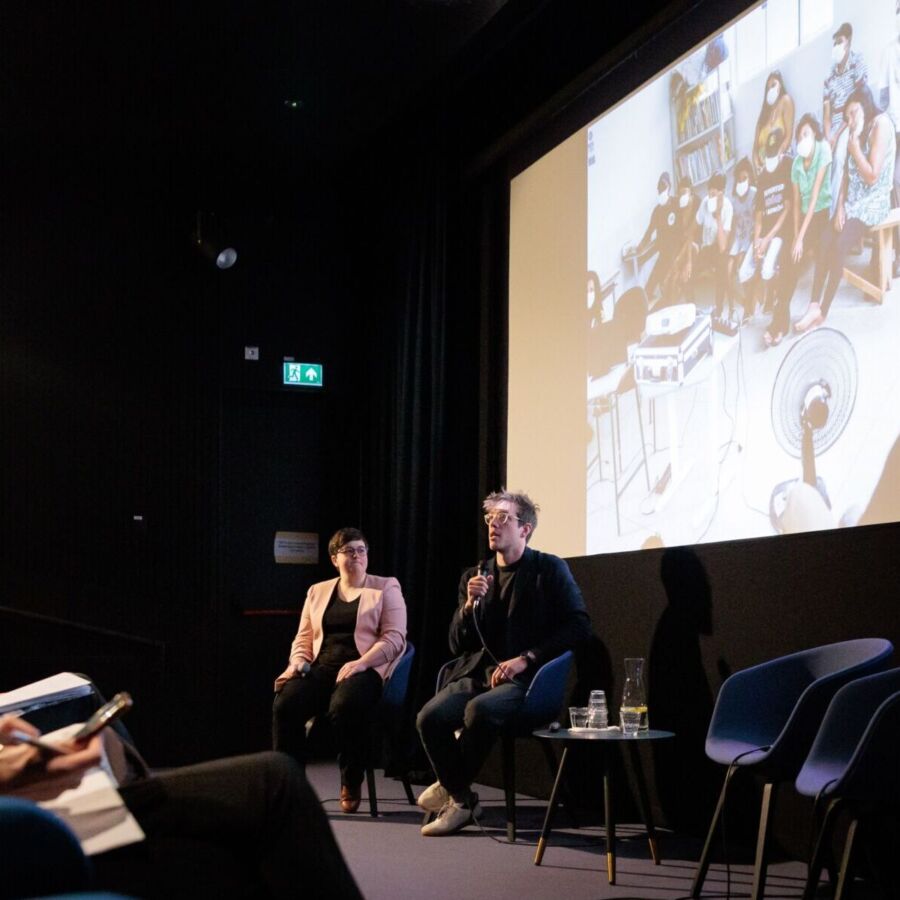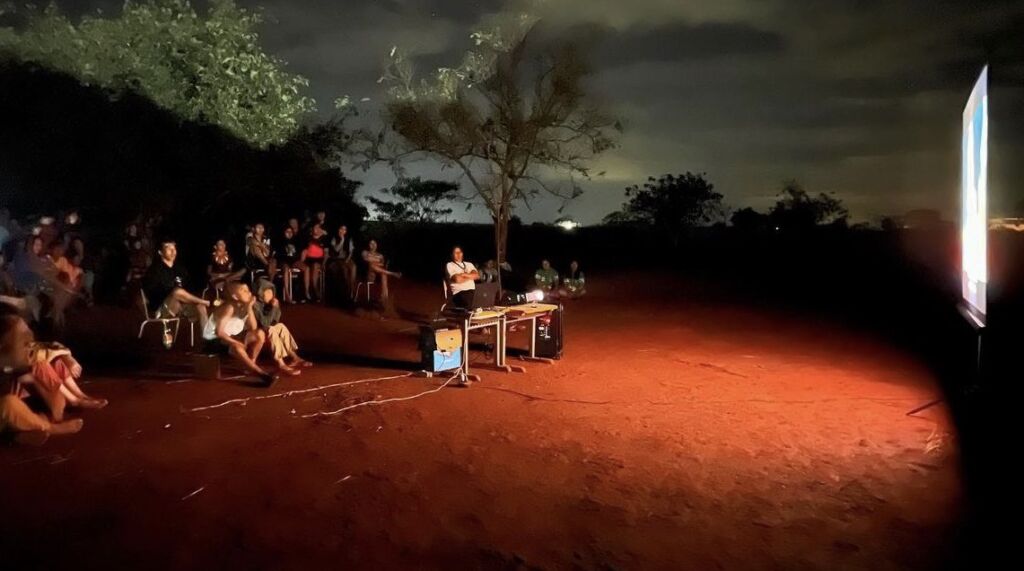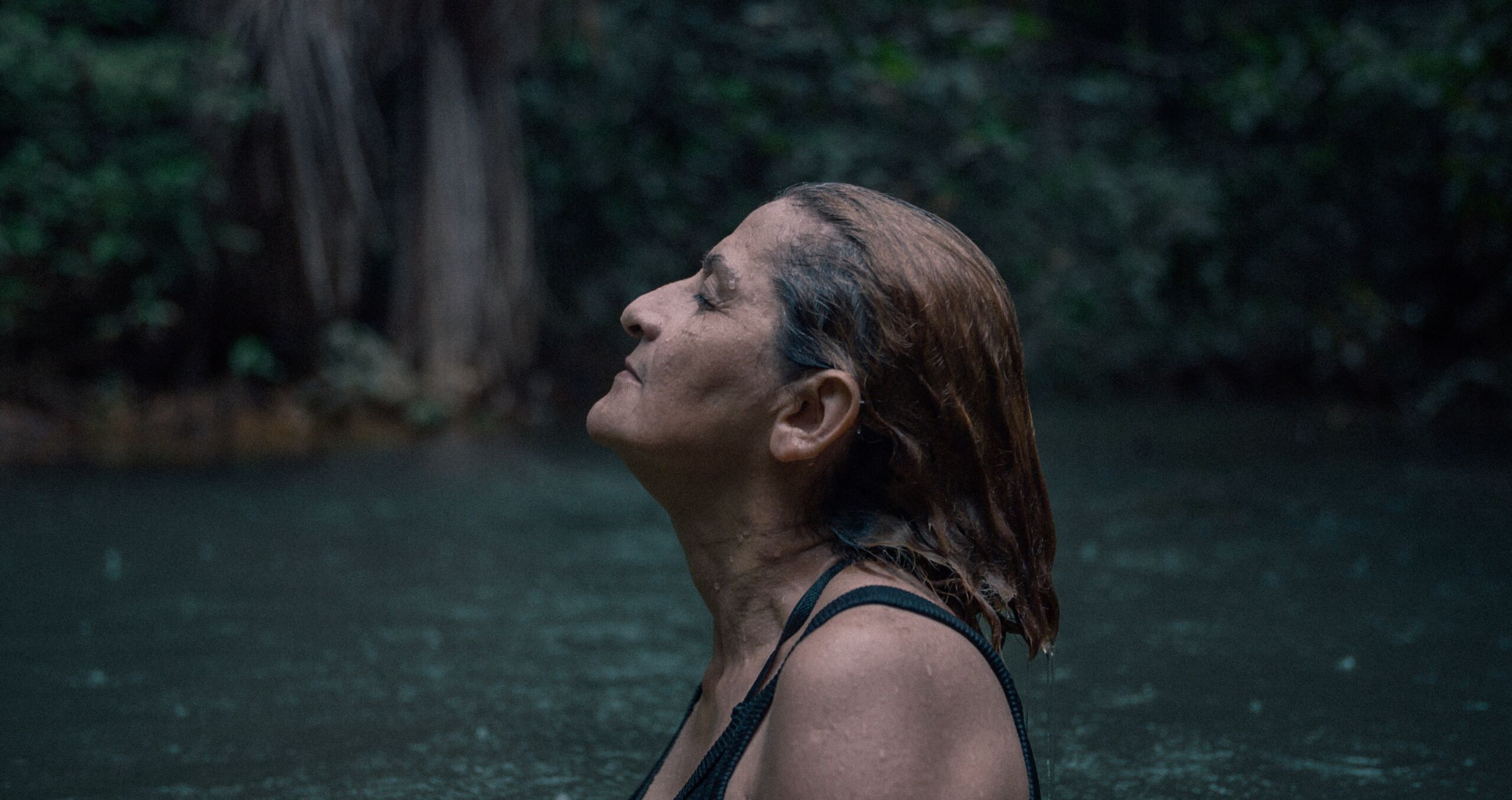The Impact of The Territory
The Territory exposes the devastating impact of deforestation while spotlighting the courageous efforts of environmental defenders. In an interview with director Alex Pritz, we delve into the film's vital role in raising awareness and galvanizing action against environmental destruction. 10 July, 2023
Alex Pritz’ The Territory has been an enormous success: it won the Activist Documentary Award during the Movies that Matter Festival in 2022 and was also nominated for the Oscars in the same year. This year, Alex visited Movies that Matter as one of the members of the jury. There, we spoke to him about the connections during the festival, and the impact of the film so far.
One of the protagonists in The Territory is Ivaneide Bandeira Cardozo, also known as Neidinha. As an environmental activist she has dedicated her life to defend the Amazone, and the rights of its inhabitants; the indigenous Uru-eu-wau-wau people. As a part of the Activist Programma, Neidinha was a guest of the Movies that Matter festival 2022 together with her daughter and environmental activist Txai Suruí. Alex: “They loved it. It was especially great for Neidinha to be in a place that is safe for activists, together with other activists. In her own country she is constantly threatened, so that was a really warm and welcoming thing.” During their stay, Neidinha and Txai met with several organisations, such as WWF, and policy officers on deforestation and climate from the Dutch Ministry of Foreign Affairs. Alex:
The connections that come from all this are really beautiful to see, even a year afterwards, they’re still bearing fruits.
A good example of this was the deal on a new EU regulation to ban deforestation related products, which was passed by the European Parliament in December 2022, Alex recalls: “During their visit to Europe, for CPH Dox and Movies that Matter, Neidinha and Txai talked to different members of the European Parliament. They were really involved in helping to explain what is related to deforestation beyond just timber, like soy plantations and the leather that comes from cows grazing illegally on their land.” Just before the vote, another member and activist of the Uru-eu-wau-wau, Kuaimbú Uru-eu-wau-wau, travelled to Brussels to screen The Territory for 150 members of Parliament and have breakfast with them. Alex: “In the Plenary session before the vote, four of them mentioned the violence against the Uru-eu-wau-wau people and the murder on Ari. They voted ‘yes’ on the regulation, which will ban soy, beef, leather, cacao, palm oil and other products coming from areas related to deforestation.”

Another part of the impact work of the film is raising awareness about the issues of deforestation and indigenous land within Brazil. With funding from Movies that Matter’s Activist Outreach Programme, Alex and his team are planning to organise more screenings across Brazil, for indigenous and farming communities, especially in more rural conservative areas. “Neidinha already had a phone call from the president of another farmer’s network. He said that with the new president [red. President Lula da Silva was elected in October 2022] and administration, they could not keep operating the same way. But the farmers need land. He asked her if she could help. She said yes and they met.
Those are the types of conversations that might not have happened without the film.
But that’s not all, Alex continues: “Another thing that I’m most excited about is that we’re working with the Uru-eu–wau-wau to build a media center in their territory. It’s made with hardwood that was reclaimed by their surveillance team from illegal loggers, so it didn’t cut down any trees. It was designed by this amazing Brazilian architecture group using indigenous design principles. Inside, it has an editing and media centre and it will have cameras, computers, editing stations.” The documentary also showed footage shot by Bitaté, the leader of the Uru-eu–wau-wau, and other members of the community, using drones and hand cameras to record evidence of land grabbing and deforestation. Bitaté is currently studying journalism and teaching other neighbouring indigenous communities on how to use drones and how to use technology. Alex: “The tools that we see the Uru-eu–wau-wau using in our film, that is happening all across Brazil. I think it is a positive thing for the movement, but also for media in general. There are more types of stories, and more types of voices coming out.”
All the attention for the film is wonderful, but having something concrete like this, that’s going to live on, that is really cool.
Even though a lot has happened since the release of the film, the struggle of the Uru-eu-wau-wau and Neidinha for the preservation of their habitat and against deforestation continues, also after the election of Lula in October 2022. Alex: “Some people may think the job is done now. But for people like Neidinha the work really starts now. She hasn’t slowed down at all. But it‘ll be an interesting next four years. With Lula in power and more representation on the federal level, with a record number of indigenous women in congress. The work basically starts now.”
-

The Territory
Stream via Disney+
Watch the MtMF22 Activist Documentary Award winner online at Disney+.